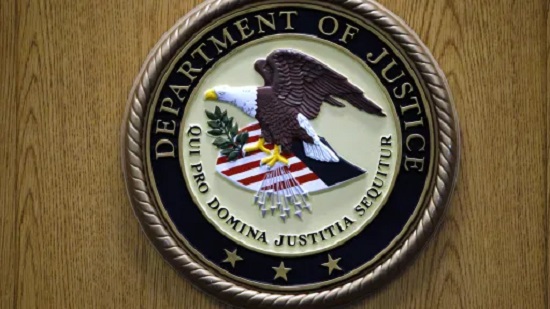Grand Rapids, MICH. – In a series of unprecedented moves, the U.S. Department of Justice (DOJ) has filed lawsuits against four states—Hawaii, Michigan, New York, and Vermont—accusing them of undermining federal authority and interfering with the Trump administration’s energy dominance agenda. The lawsuits, filed this week, challenge the states’ efforts to take legal action against fossil fuel companies for their contributions to climate change.
The DOJ’s legal actions focus on two key issues: state lawsuits targeting fossil fuel companies for the environmental damages they have caused, and state superfund laws that require fossil fuel corporations to pay into funds designed to address climate-related damage. According to the DOJ, these state actions are unconstitutional and interfere with federal regulatory authority, particularly the Clean Air Act, which grants the Environmental Protection Agency (EPA) the authority to regulate air emissions, including greenhouse gases.
Attorney General Pamela Bondi expressed strong opposition to the state-level climate initiatives, arguing that they threaten “American energy independence” and undermine the national energy market. Bondi stated that the states’ efforts “increase energy costs and disrupt the national energy market,” framing these actions as part of a broader agenda to hinder the production of affordable, reliable energy.
The lawsuits mark the latest chapter in the Trump administration’s push to expand fossil fuel production and investment. The administration has previously rolled back a number of environmental regulations, including those aimed at curbing emissions from coal-fired power plants, blocking renewable energy development, and supporting oil and gas expansion.
Hawaii and Michigan Take Legal Action Against Fossil Fuel Companies
The DOJ’s lawsuit against Hawaii targets the state’s ongoing legal battle with several fossil fuel companies, including the American Petroleum Institute. Hawaii’s lawsuit, filed in response to climate impacts like the 2023 deadly wildfire in Lahaina, alleges that fossil fuel companies have caused significant harm to public trust resources through their contributions to climate change. Governor Josh Green has expressed the intention to hold these companies accountable, stating that the lawsuit seeks to “shift the costs of surviving the climate crisis back where they belong” and protect future generations of Hawaiians.
Similarly, Michigan Attorney General Dana Nessel has prepared to file a lawsuit against fossil fuel companies, accusing them of contributing to climate change and environmental degradation. Nessel and Governor Gretchen Whitmer have emphasized their commitment to ensuring that the state can pursue legal claims against the fossil fuel industry, despite the federal government’s opposition.
New York and Vermont Push for Climate Superfund Laws
In addition to suing fossil fuel companies, New York and Vermont have introduced climate superfund laws designed to hold corporations financially responsible for their role in climate change. New York’s law, which seeks $75 billion in damages from fossil fuel companies, has already faced challenges from 22 other states. Vermont’s law, while still in its early stages, similarly aims to extract financial compensation for climate-related harm.
The DOJ’s filings argue that these superfund laws are a direct challenge to federal authority, claiming that they represent an effort to regulate greenhouse gas emissions on a national and global scale, which is outside the scope of state powers. The department’s legal brief also contends that such state laws discourage investment and innovation in the fossil fuel industry, exacerbating the nation’s energy crisis.
Governor Kathy Hochul of New York has firmly defended the state’s approach, stating that “corporate polluters should pay for the damage done to our environment—not everyday New Yorkers.” New York Attorney General Letitia James echoed this sentiment, emphasizing that the state’s climate superfund law ensures that those responsible for the climate crisis contribute to addressing its impacts.
Vermont Attorney General Charity Clark has expressed confidence in defending the state’s law, highlighting Vermont’s commitment to holding fossil fuel companies accountable for their contribution to climate change.
Legal Experts Raise Concerns Over Federal Intervention
Legal experts have raised concerns about the DOJ’s aggressive stance in these cases, calling the lawsuits an attempt to preemptively block state-level climate litigation. Michael Gerrard, founder of the Sabin Center for Climate Change Law at Columbia University, noted that it is rare for the federal government to intervene in this manner, especially before a lawsuit has even been filed. According to Gerrard, this action marks an unprecedented effort to support the fossil fuel industry and hinder state efforts to protect their environment.
Ann Carlson, an environmental law professor at UCLA, further criticized the DOJ’s approach, highlighting the contradiction between the federal government’s claims that the Clean Air Act preempts state regulations on greenhouse gases while simultaneously working to dismantle federal protections that regulate those emissions.
The Broader Context: Trump Administration’s Energy Policy
These legal challenges come as part of the Trump administration’s broader energy policy, which has been criticized for prioritizing fossil fuel development at the expense of climate action. The administration has consistently rolled back environmental regulations, supported coal power, and pushed for expanded oil and gas drilling, all while downplaying the effects of climate change.
With the DOJ’s latest lawsuits, the Trump administration appears to be doubling down on its stance against state-level climate initiatives. The lawsuits reflect an ongoing tension between federal and state powers when it comes to addressing climate change, with the Trump administration framing state efforts as obstacles to achieving the nation’s energy goals.
As these legal battles unfold, many environmental advocates and legal experts will be closely watching to see how the courts address the balance of power between federal and state governments in the realm of climate policy. The outcome of these cases could have far-reaching implications for states’ ability to protect their environments and hold corporations accountable for their role in the climate crisis.







